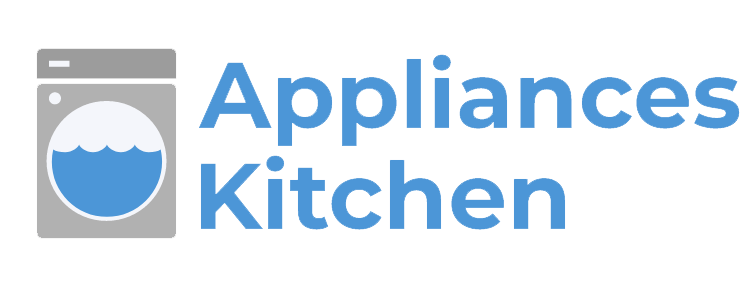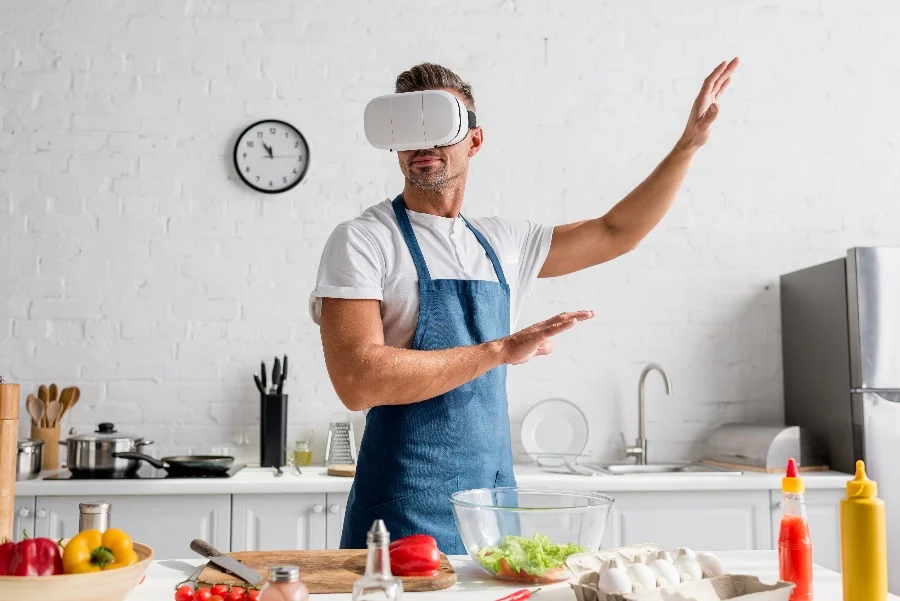Introduction:
In the ever-evolving landscape of culinary arts, technology continues to play a transformative role, offering new avenues for learning and skill development. Virtual Reality (VR) has emerged as a groundbreaking tool, introducing immersive cooking experiences that go beyond traditional methods of culinary education. This article explores the innovative realm of Virtual Reality cooking experiences and their impact on culinary learning, particularly in the context of the United Kingdom. From skill enhancement to creative exploration, VR is reshaping how chefs in the UK approach their craft.
The Evolution of Culinary Education
Traditional Training Methods:
Historically, culinary education relied heavily on traditional methods, including hands-on experience, mentorship, and classroom instruction. While effective, these approaches may have limitations in terms of accessibility, scalability, and exposure to diverse culinary techniques.
Technology in Culinary Arts:
The integration of technology in culinary arts has seen the advent of online courses, video tutorials, and interactive platforms. However, Virtual Reality takes this integration to a whole new level, offering a truly immersive and experiential learning environment.
Virtual Reality in Culinary Education
Immersive Learning Environments:
VR creates immersive and realistic environments that simulate professional kitchens, allowing chefs to practice and refine their skills in a virtual setting. This hands-on experience bridges the gap between theoretical knowledge and practical application.
Accessible Training Anytime, Anywhere:
One of the key advantages of VR cooking experiences is the accessibility they provide. Chefs can engage in training sessions and simulations from the comfort of their homes or workplaces, eliminating geographical barriers.
Skill Enhancement and Precision:
VR enables chefs to enhance specific skills, from knife techniques to intricate plating. The precision and attention to detail afforded by virtual simulations contribute to a higher level of mastery in various culinary disciplines.
Experimentation and Creativity:
Virtual Reality allows chefs to experiment with ingredients, techniques, and flavor combinations in a risk-free environment. This promotes creativity and encourages chefs to push the boundaries of their culinary expertise.
Benefits of Virtual Reality Cooking Experiences for UK Chefs
Realistic Simulation of Kitchen Environments:
VR creates highly realistic simulations of professional kitchens, providing chefs with an authentic experience that closely mirrors real-world culinary scenarios.
Safe Exploration of New Techniques:
Chefs can explore and practice new techniques without the risk of wasted ingredients or the pressure of a live kitchen. VR environments allow for mistakes and experimentation in a controlled and safe space.
Adaptive Learning Paths:
Virtual Reality systems can be programmed to adapt to individual learning paths, providing tailored experiences based on a chef’s skill level, preferences, and areas for improvement.
Global Culinary Exposure:
VR cooking experiences can expose chefs to diverse global cuisines and culinary traditions. This cultural immersion enhances their culinary knowledge and expands their repertoire of skills.
Team Collaboration and Communication:
VR platforms facilitate collaborative learning experiences, allowing chefs to work together in virtual kitchens. This promotes effective communication, teamwork, and the development of essential kitchen management skills.
VR Cooking Platforms and Technologies
The Wild Immersion:
The Wild Immersion is a VR platform that offers realistic kitchen simulations, allowing chefs to practice a wide range of culinary tasks and techniques. The platform emphasizes experiential learning and skill development.
Cooking Simulator VR:
Cooking Simulator VR provides a virtual kitchen environment where chefs can experiment with ingredients, follow recipes, and refine their cooking skills. The platform focuses on the sensory and tactile aspects of culinary arts.
ChefSteps VR:
ChefSteps VR offers a comprehensive learning experience with interactive lessons, hands-on exercises, and real-time feedback. The platform covers various culinary disciplines, from basic techniques to advanced cooking methods.
Oculus for Business:
Oculus for Business provides a versatile VR solution for training and education, including culinary arts. It offers a range of applications and experiences that can be tailored to meet the specific needs of culinary professionals.
Challenges and Considerations
Equipment Costs:
The initial investment in VR equipment, including headsets and controllers, may pose a financial barrier for some chefs or culinary institutions. However, as technology advances, costs are expected to decrease.
Technical Proficiency:
Chefs may need to acquire basic technical proficiency to operate VR systems effectively. Training programs and user-friendly interfaces can help overcome this challenge.
Integration with Traditional Training:
Integrating VR cooking experiences with traditional training methods may require careful planning to ensure a cohesive and comprehensive curriculum.
Customization and Adaptability:
VR platforms should be customizable and adaptable to the unique needs and preferences of individual chefs. This requires ongoing development and updates to meet evolving culinary trends.
Future Trends in VR Cooking Experiences
Enhanced Interactivity:
Future developments may focus on enhancing interactivity within VR cooking experiences, allowing chefs to manipulate virtual ingredients with even greater precision and realism.
AI-Powered Feedback:
Artificial Intelligence (AI) integration may enable VR systems to provide more sophisticated and personalized feedback, identifying specific areas for improvement and offering tailored coaching.
Multi-Sensory Integration:
Advancements in technology may lead to the integration of additional sensory experiences, such as smell and taste, further immersing chefs in the virtual culinary environment.
Global Collaboration and Competitions:
VR platforms could facilitate global collaboration among chefs, allowing them to work together on virtual projects, share expertise, and even participate in virtual culinary competitions.
The Impact of VR Cooking Experiences on Culinary Education in the UK
Culinary School Integration:
Culinary schools in the UK may increasingly incorporate VR cooking experiences into their curricula, providing students with valuable hands-on training in addition to traditional instruction.
Professional Development for Chefs:
Established chefs in the UK can use VR cooking experiences for continuous professional development, staying updated on culinary trends, and refining their skills in response to evolving industry standards.
Increased Accessibility:
VR cooking experiences democratize culinary education by making it more accessible to individuals who may not have the means or opportunity to attend traditional culinary schools.
Elevating Culinary Standards:
The immersive nature of VR cooking experiences raises the overall standards of culinary education in the UK, fostering a generation of chefs who are well-versed in both traditional and cutting-edge techniques.
Recommendations for Chefs Exploring VR Cooking Experiences
Start with Basic Simulations:
Chefs new to VR cooking experiences should begin with basic simulations to familiarize themselves with the virtual environment and gradually progress to more advanced tasks.
Collaborate with Peers:
Explore VR platforms that facilitate collaboration with other chefs. Working with peers in virtual kitchens can provide valuable insights and enhance teamwork skills.
Seek Professional Development Opportunities:
Embrace VR as a tool for continuous professional development. Stay informed about new applications, platforms, and advancements in VR technology relevant to the culinary industry.
Provide Feedback to Developers:
Participate in the development process by providing feedback to VR platform developers. Sharing insights and suggestions helps improve the usability and effectiveness of VR cooking experiences.
Conclusion
Virtual Reality cooking experiences have ushered in a new era of innovation and learning for chefs in the United Kingdom. By offering immersive, realistic, and accessible training environments, VR has become a valuable tool for skill development and culinary exploration. As the technology continues to evolve, so too will its impact on the culinary landscape, shaping the way chefs approach their craft. From culinary schools to professional kitchens, Virtual Reality is carving a space for itself as an indispensable component of culinary education in the UK, fostering a generation of chefs who are not only skilled but also well-versed in the limitless possibilities that technology can offer to the world of gastronomy.

